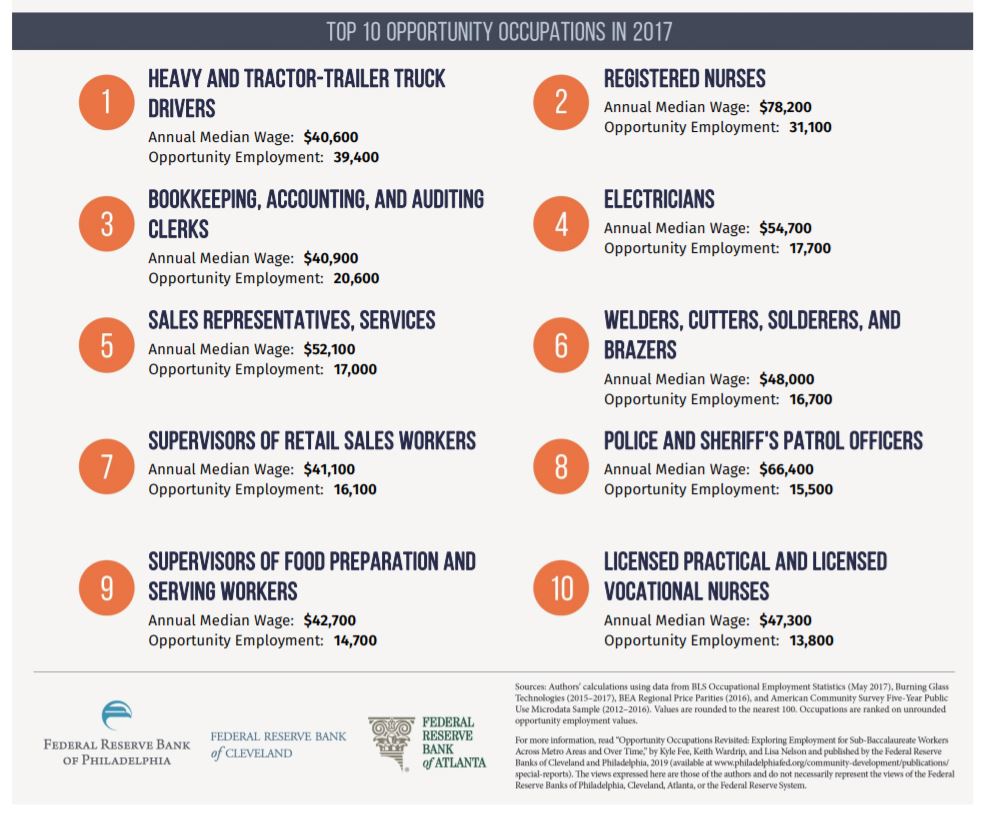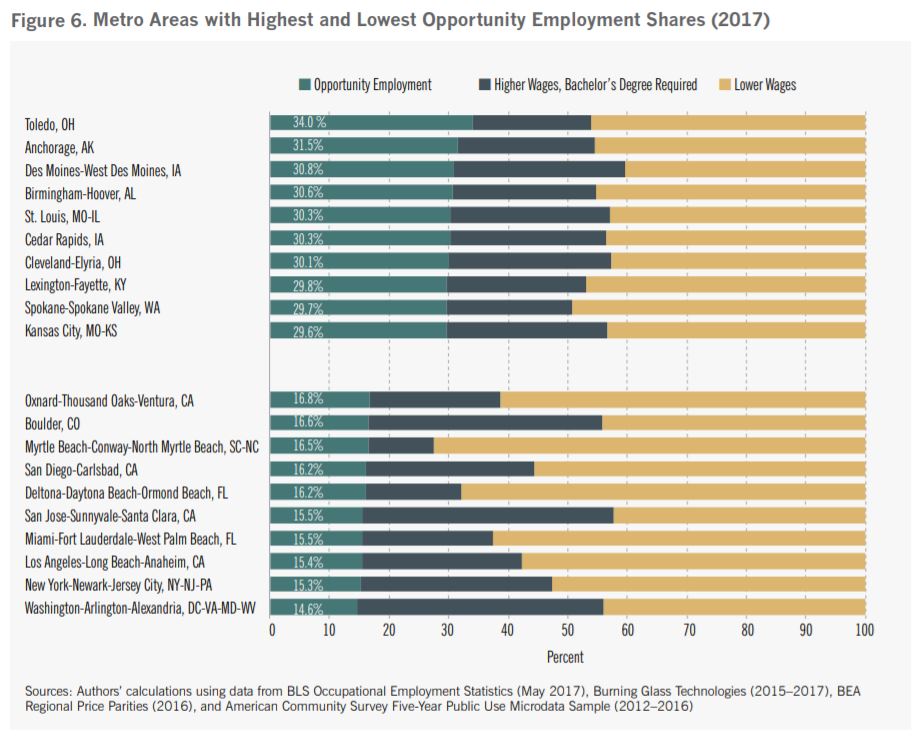Houston is the 64th city out of 121 metros studied that offer the best opportunities for good jobs for people without bachelor degrees, according to research from the Federal Bank Reserves of Philadelphia, Cleveland and Atlanta. To find the number of good jobs for people without degrees, the researchers scoured nearly 30 million local job ads to determine the jobs' minimum educational requirements. Then, the researchers identified the "good jobs" as jobs that pay more than the national median wage ($37,690 in 2017), adjusted up or down for the cost of living in the area.
Across the nation, 21.6 percent of total employment falls under the researchers' "good job" classification, labeled as "opportunity occupations" in the research. In Houston, that number is 24 percent and 49.3 percent of Houston's total employment is categorized as lower-wage opportunities, which are jobs that do not pay more than the national median wage adjusted for the cost of living in Houston.
"Because more than two-thirds of U.S. residents age 25 and over do not have a four-year college degree and only 21.6 percent of employment in the metro areas analyzed meets our definition of opportunity employment, it is necessarily the case that sub-baccalaureate workers outnumber accessible jobs paying higher wages," the report notes.
At 24 percent, Houston is the best city in Texas for opportunity employment. San Antonio-New Braunfels, Dallas-Fort Worth-Arlington, Austin-Round Rock and El Paso follow at 22.4, 22.3, 18.5 and 17.4 percent, respectively.
According to the research, the top ten "good jobs" in 2017 in Houston can be seen in the photo below:

Source: Federal Reserve Banks of Philadelphis, Cleveland and Atlanta.
On a national scale, the research has a resounding message for those seeking good jobs without degrees: Stay out of the superstar cities, like Miami, Los Angeles, New York City and D.C., all of which are in the top five worst cities for opportunity occupations. Instead, focus your job search in cheaper metropolitan areas. Toledo, Ohio; Anchorage, Alaska; Des Moines, Iowa; and Birmingham, Alabama are the top four cities for opportunity occupations in the nation, respectively. Regionally, the Midwest has the highest shares of opportunity employment.

Source: Federal Reserve Banks of Philadelphia, Cleveland and Atlanta.
Throughout America, there are about 22 million jobs and over one in five across the 121 metropolitan areas studied pay more than the median wage. A few surprises from the study include registered nurses being among the top opportunity occupations as 66 percent of available registered-nurse jobs, which are expected to add nearly half a million jobs by 2026, did not require a college degree, according to the research. Neither did 46 percent of openings for executive secretaries and executive administrative assistants, nor did 52 percent of the openings for computer-user support specialists.
Improving the skills of today's workers, expanding access to available jobs, and local leaders focusing of regional economic development efforts and affordability are all suggestions the researchers propose in order to increase the access of opportunity occupations across the nation.
"Whether skills are developed and credentials are attained through an apprenticeship, a sector-based career pathways approach, a coding boot camp, or any other means, the sometimes challenging task of engaging employers in both the development of the training curriculum and the hiring of successful participants is critical to success," the research notes. "Moreover, given that housing costs are a large component of regional prices and household budgets, efforts to maintain or expand the level of opportunity employment could look to affordable housing policies for solutions. In both low- and high-cost metros, policies that create and preserve affordable housing could lead to better alignment between costs and wages."

